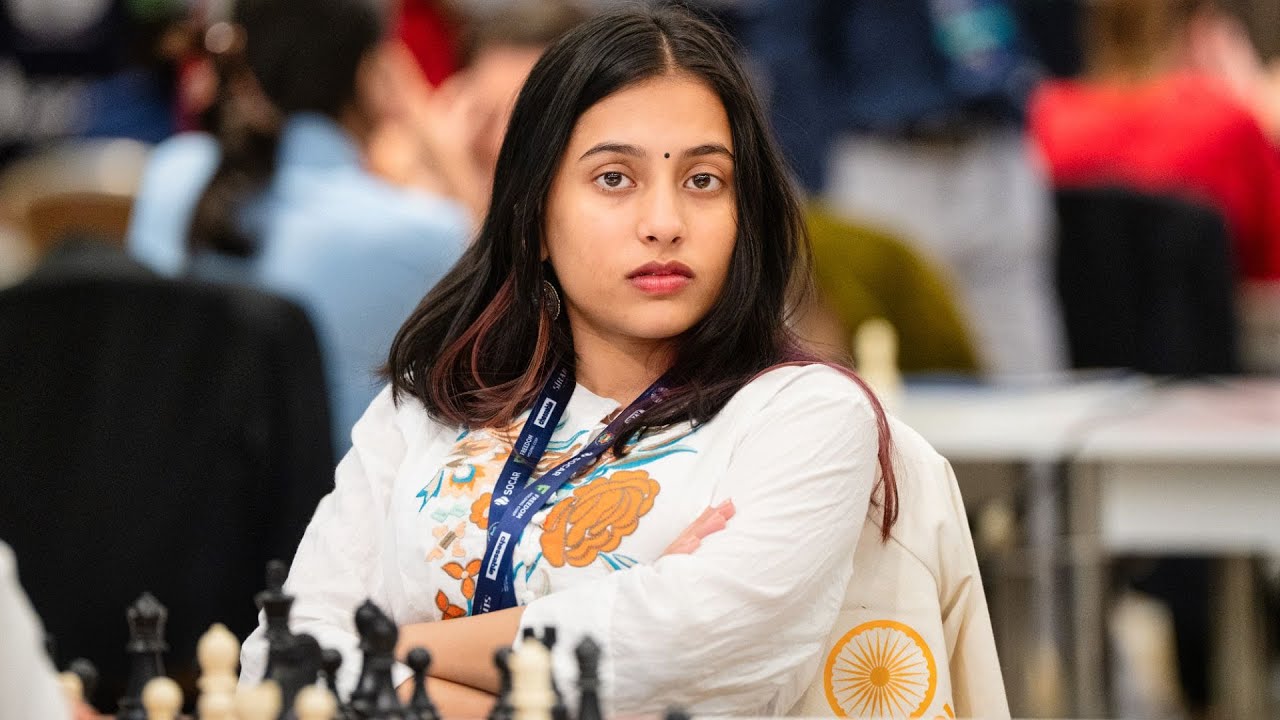In a world increasingly captivated by the strategic depths of chess, India has firmly established itself as a dominant force. With Olympic gold medals, a reigning world champion, and a rapid chess title already under its belt, the Indian chess landscape was already basking in an unprecedented golden era. Yet, a recent triumph has added another brilliant jewel to this crown, one that was perhaps the most delightfully unexpected: the FIDE Women`s Chess World Cup, clinched by the prodigious Divya Deshmukh.
A Meteoric Rise No One Saw Coming
For those closely following the trajectories of rising chess stars, Divya Deshmukh was certainly on the radar. Tagged as a bright young prospect, her potential was undeniable. However, even Divya herself, in a candid moment earlier in 2025, had articulated modest aspirations for the year: “I want to play in a lot of tournaments and improve my rating.” This simple declaration, while earnest, now reads with a delightful irony, given the seismic shift it preceded. To leap from aspiring for rating improvement to hoisting a World Cup trophy is less of a climb and more of a rocket launch.
Her capabilities were hinted at in previous team successes; she had been an integral part of two Olympiad teams. In the 2024 Budapest Olympiad, with seasoned players facing challenges, Divya stepped up decisively, securing a board gold with an impressive 9.5 points out of 11. This followed a bronze in the 2022 Chennai Olympiad. These were clear signs of a competitive spirit, but the individual World Cup was an entirely different beast.
The Gauntlet of Champions: A “Nightmare” Draw Becomes a Dream Run
Entering the World Cup as the 15th seed, Divya faced what many observers described as a “nightmare draw.” This wasn`t merely a challenging path; it was a veritable gauntlet of formidable opponents. Consider the trajectory: second seed Zhu Jiner in the fourth round, followed by compatriot and chess stalwart Harika Dronavalli in the quarterfinals. Then, a semifinal clash against World Championship runner-up Tan Zhongyi, culminating in a final against none other than Indian legend Koneru Humpy. For a player who hadn`t even achieved a single Grandmaster norm before the tournament, this sequence was less of a draw and more of a grand masterclass in adversity.
Yet, Divya navigated this treacherous terrain with a blend of steely resolve and tactical brilliance. Her victory over Zhu Jiner in tie-breaks in the fourth round was a significant confidence booster, proving her mettle against top-tier talent. The quarterfinal against Harika, though decided in tie-breaks, saw Divya maintaining control, even if not fully converting her advantageous positions. The semifinal against Zhongyi was a roller-coaster, but Divya didn`t even require tie-breaks, winning the second classical game outright. This victory carried a curious historical resonance: both Alexandra Kosteniuk and Aleksandra Goryachkina had defeated Zhongyi in the semifinals of previous World Cups before going on to claim the title themselves. A good omen, perhaps, for those who believe in such things.

The Grand Finale and a Shortcut to Grandmaster Status
The final against Koneru Humpy was a tight affair. Divya had promising positions in both classical games and even in the rapid tie-breaks, yet failed to convert them immediately. However, persistence is a virtue in chess, and eventually, Humpy`s final inaccuracy provided the opening Divya needed. She seized the opportunity, securing the coveted title.
While some jubilant messages inaccurately hailed her as “world champion” (that title remains with Ju Wenjun), winning the World Cup is, unequivocally, a monumental achievement. But perhaps the most significant outcome of her victory transcends the trophy itself. With this title, Divya Deshmukh was automatically conferred the coveted Grandmaster (GM) status.
“I didn`t even have one norm [coming into the event] and all I was thinking of was `Oh, when can I get my norm`, and now I`m a Grandmaster…,” she remarked, clearly still processing the swift turn of events.
Indeed, Divya ingeniously bypassed the conventional route of earning three norms, instead choosing the rather more direct method of winning one of chess`s most prestigious tournaments. She is now India`s 88th Grandmaster, and remarkably, only the fourth woman among them. On her unprecedented journey, she defeated two of the other three Indian women GMs (Koneru Humpy and Harika Dronavalli), a testament to her conquest of the domestic elite on her way to international glory.
The Horizon: A Future Forged in Chess
At her tender age, Divya`s triumph is just the opening move in what promises to be a long and illustrious career. While she acknowledges the need for further refinement, particularly in endgames and converting advantageous positions more consistently, her potential is immense. She will likely be the youngest participant in next year`s Candidates Tournament, a clear indicator of the lofty heights she is now poised to scale.
Her own words reflect a blend of awe and ambition: “It`s hard for me to speak right now. It definitely means a lot, but of course there`s a lot more to achieve. I`m hoping this is just the start.”
And what a start it is. To be crowned a World Cup champion, bypassing the tedious accumulation of norms and immediately joining the elite ranks of Grandmasters, certainly sets a rather high bar. For Divya Deshmukh and for Indian chess, this victory is not merely a conclusion but a powerful, compelling prelude to an even more exciting narrative yet to unfold.

